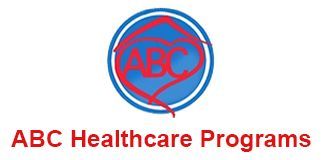3 Ways Home Health Care Service Supports Recovery
Home health care services play a crucial role in supporting recovery by providing personalized care, enhancing independence, and offering a cost-effective solution for patients. This article explores various ways in which these services contribute to effective recovery. By leveraging skilled nursing care and tailored care plans, these services meet diverse patient needs to promote optimal recovery and well-being. The increasing reliance on home health care is evident, with approximately 12 million Americans receiving such services annually, according to Media.Market. This article delves into how a home health care service can effectively accelerate recovery and improve patient outcomes.
1. Developing Personalized Care Plans
1.1 Conducting Comprehensive Assessments
Comprehensive assessments form the cornerstone of a home health care service. They involve a detailed analysis of a patient’s physical, mental, and social health status to tailor an effective care plan. Healthcare providers gather pertinent information about the patient’s medical history, current health conditions, and lifestyle. This data collection helps in identifying the unique needs of each patient, enabling a bespoke approach to care. Such personalized evaluations ensure that every aspect of the patient’s health is addressed, thereby aiding in optimal recovery.
1.2 Setting Individualized Goals
Individualized goal setting is essential in empowering patients to achieve specific health outcomes. During this process, caregivers collaborate with patients and families to set realistic recovery targets. These goals are designed to be attainable, measurable, and aligned with the patient's overall recovery journey. By focusing on what the patient values and wishes to achieve, caregivers can better motivate and engage patients in their own recovery. This personalized approach fosters a sense of ownership and partnership between the patient and healthcare team.
1.3 Monitoring and Adjusting Regularly
Regular monitoring and adjustments are integral to maintaining the effectiveness of a care plan. Home health care professionals routinely assess the patient’s progress and modify the care plan as necessary. This dynamic approach ensures that any changes in the patient’s condition are promptly addressed. Monitoring involves close supervision of medication adherence, vital signs, and overall health indicators. Such vigilant oversight helps in promptly detecting potential complications, thereby enhancing recovery outcomes.
1.4 Coordinating with Healthcare Providers
Coordination with healthcare providers is a key element in delivering comprehensive home health care services. Home caregivers often collaborate with doctors, specialists, and therapists to ensure a cohesive care plan. This teamwork is vital in aligning treatment modalities, medications, and patient education. Through regular communication and shared patient data, healthcare providers can offer consistent and continuous care, avoiding any lapses in treatment. This collaboration enhances the quality and safety of patient care, contributing to effective recovery.
1.5 Involving Patients and Families
Engaging patients and their families in the recovery process is pivotal in a home health care service. Family involvement provides emotional support and encouragement, which are critical for effective healing. Educating family members about the patient’s care plan and progress fosters a supportive environment. Additionally, involving the family in decision-making empowers them to advocate for the patient’s needs and preferences. This collaborative approach fosters a holistic recovery process, addressing both medical and emotional needs.
2. Providing Professional Medical Support
2.1 Delivering Skilled Nursing Care
Skilled nursing care is a fundamental component of any home health care service, ensuring patients receive expert medical attention. Nurses provide critical services such as medication administration, wound care, and monitoring of vital signs. Their expertise ensures that complex medical needs are met with precision and care. Skilled nursing also involves patient education, empowering individuals to manage their health actively. This professional support is instrumental in optimizing recovery and maintaining the patient’s overall well-being.
2.2 Offering Physical Therapy
Physical therapy is a vital service provided in home health care to enhance physical recovery. Therapists design exercise programs tailored to improve strength, mobility, and overall function. By conducting therapy sessions in the comfort of the patient's home, barriers to participation are reduced. This convenience encourages consistency, which is key to achieving rehabilitation goals. Physical therapy not only aids in physical recovery but also boosts confidence and autonomy in daily activities.
2.3 Providing Occupational Therapy
Occupational therapy focuses on helping patients regain their ability to perform daily activities with ease. Therapists work with patients to improve fine motor skills, increase coordination, and adapt to new ways of completing tasks. They also provide training in using adaptive equipment that can facilitate daily tasks. By enhancing these skills, occupational therapy supports independence and improves the overall quality of life. This form of therapy is especially beneficial for patients recovering from strokes or traumatic injuries.
2.4 Managing Medications Effectively
Effective medication management is crucial in home health care services, ensuring patients adhere to prescribed treatment regimens. Healthcare professionals organize medications, provide reminders, and educate patients about the importance of adherence. They also monitor for potential side effects and interactions, intervening when necessary. This vigilant approach minimizes the risks of medication errors and non-compliance, improving treatment efficacy. Medication management is a proactive strategy that safeguards patient health during the recovery process.
2.5 Performing Wound Care and Management
Efficient wound care and management are integral to preventing infections and promoting healing in home health care patients. Professionals provide wound assessments, cleaning, and dressing changes, employing the latest techniques to encourage recovery. Proper wound care reduces the likelihood of complications, which can hinder recovery. Educating patients and caregivers on wound care best practices further supports healing efforts. This specialized care is particularly important for patients with chronic wounds or post-surgical needs.
3. Enhancing Patient Independence
3.1 Assisting with Daily Living Activities
Assistance with daily living activities (ADLs) is essential in helping patients regain their independence. Caregivers provide support with activities such as bathing, dressing, and meal preparation. This assistance ensures that patients can maintain their dignity while living independently at home. Personalized support plans focus on enhancing the patient’s strengths while compensating for any limitations. By promoting self-sufficiency, a home health care service fosters autonomy and confidence in everyday life.
3.2 Supporting Mobility
Mobility support is a critical aspect of home health care, enabling patients to move safely and confidently in their environment. Caregivers assist with safe transfer techniques, the use of mobility aids, and fall prevention strategies. Encouraging regular physical activity helps maintain muscle strength and joint flexibility. Mobility support also includes the adaptation of living spaces to accommodate patient needs. This holistic approach enhances patient freedom and reduces the risk of accidents, significantly improving quality of life.
3.3 Training in Adaptive Equipment Use
Training in the use of adaptive equipment is key to enhancing patient independence. Home health professionals educate patients and caregivers on the proper use of tools such as walkers, grab bars, and shower chairs. This training ensures that patients can perform daily activities safely and effectively. Adaptive equipment helps overcome physical challenges and fosters a sense of empowerment. By providing the necessary skills and knowledge, this support plays a vital role in the recovery process.
Home health care services are instrumental in supporting recovery by addressing medical, emotional, and practical needs that facilitate patient independence and well-being. By understanding the diverse benefits they offer, patients and families can make informed decisions that promote a holistic recovery process. With comprehensive assessments, professional support, and cost-effective solutions, a home health care service ensures optimal recovery environments. As an accessible and personalized form of healthcare, it empowers patients toward achieving successful health outcomes. By embracing a home health care service, millions of Americans each year find a path to recovery that emphasizes dignity, independence, and quality of life. If you're looking for a reliable home health care service, make sure to contact ABC Healthcare Programs today!





Share On: